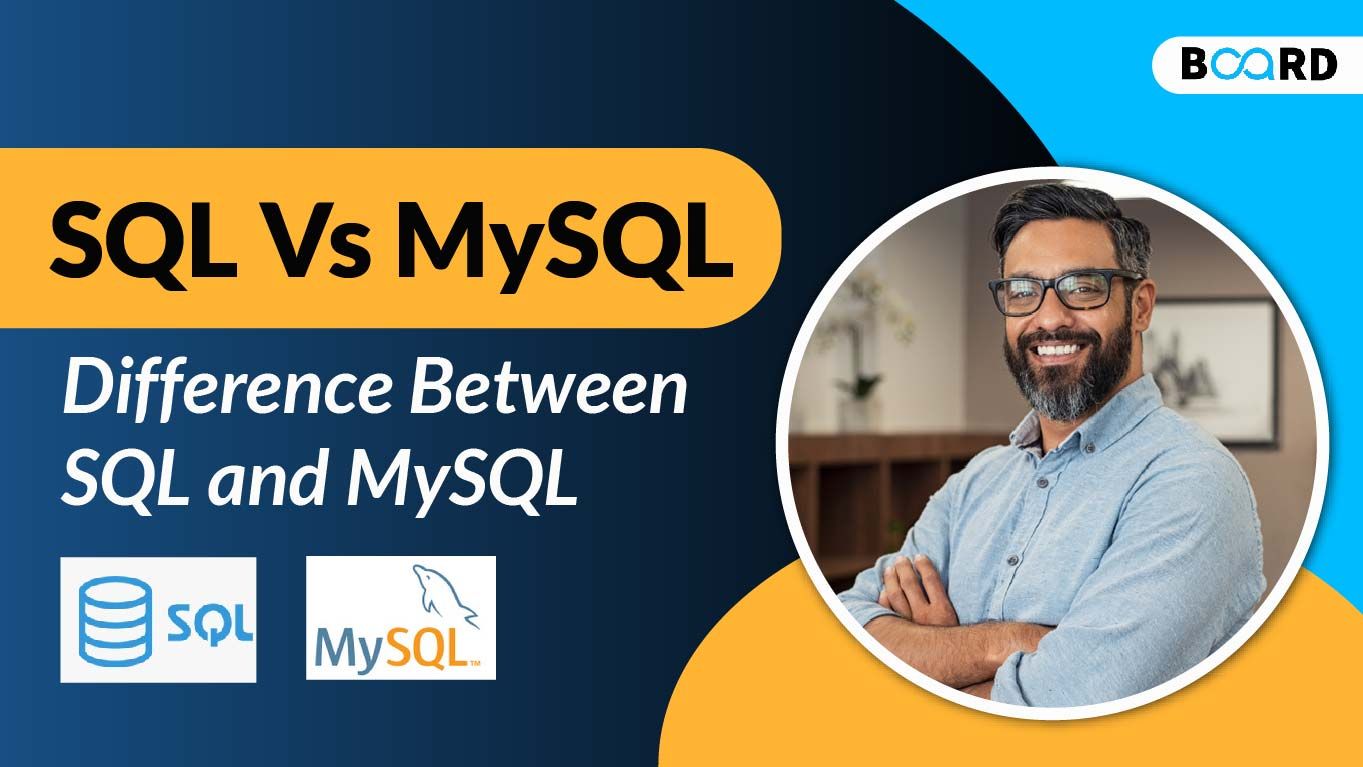
SQL and MySQL are important tools used in different job fields such as Data Analytics, Business Management, and others. Databases have become increasingly important in the online world. There is a significant difference between SQL and MySQL; both tools are used in these databases to organize and facilitate data for business, academic or other purposes.
1. What is SQL?
SQL (Structured Query Language) is a programming language that allows users to retrieve, manage, and store data in relational database management systems.
SQL is a standardized and interactive scripting language widely used by businesses due to its adaptability, speed of query processing, and ease of retrieving and handling database systems. SQL Query refers to the condition of declarative SQL statements. SQL is a programming language used to access, update, and manipulate data in databases, such as MYSQL. The SQL language is also used to control data access and create and modify database schemas.
Features of SQL
- Data Definition Language
- Data Manipulation Language
- Client-server execution and remote server access
- Security and Authentication
- Embedded SQL
- Transaction control language
Benefits of SQL
- Portability
- Interactive Language
- Multiple Data Views
- Coding is not required
- High Speed
2. What is MySQL?
MySQL is defined as a relational database management system created in 1995 and first released in 1996. MySQL AB, which was later bought by Sun Microsystems, which has become Oracle Corporation, developed and sponsored it. MySQL is an integration of the words 'My' (the daughter of one of the co-founders) and 'SQL.'
MySQL was among the first open-source relational databases to be developed and released. MySQL comes in a variety of flavors right now. All of the variations, however, have the same basic syntax. MySQL is compatible with various operating systems and was designed and written in C and C++. It's a key component of the LAMP (Linux, Apache, MySQL, PHP/Perl/Python) web application software stack, which stands for Linux, Apache, PHP/Perl/Python, MySQL.
MySQL is the database system of choice for many top-tier companies, including Google, Facebook, and others when managing large amounts of data.
Features of MySQL
- Open-source
- Fast & reliable
- Support for large databases
- Client & Utility programs
Benefits of MySQL
- Data Protection
- Flexibility and scalability on demand
- Controlling the Workflow from Start to Finish
- Complete Transactional Assistance that is open-source
- Exceptional Results
3. SQL v/s MySQL: 12 Most Noted Differences
SQL and MySQL serve different purposes within a database. SQL is a programming language used to operate a database, whereas MySQL was the first open-source database available. The former is a query language, while the latter is database software.
Here are some of the key parameters to differentiate between SQL and MySQL.
Conclusion
MySQL is open-source software, whereas SQL is a programming language. Both are well-known in their fields and in high demand in jobs that involve managing and administrating data for business strategy or insightful purposes. The purposes and functions of SQL and MySQL are not the same. When you compare them to their competitors, all of your choices come into play, such as selecting MySQL over other RDBMS for its data security, excellent quality, and free access. SQL and MySQL are two different databases, but they help users achieve scalability, effectiveness, and improved performance.
Pursue some short-term courses to boost your career, especially a Data Science Certification course with Board Infinity, to widen your knowledge in Data Science and be recognized as a Data Scientist in the future.
